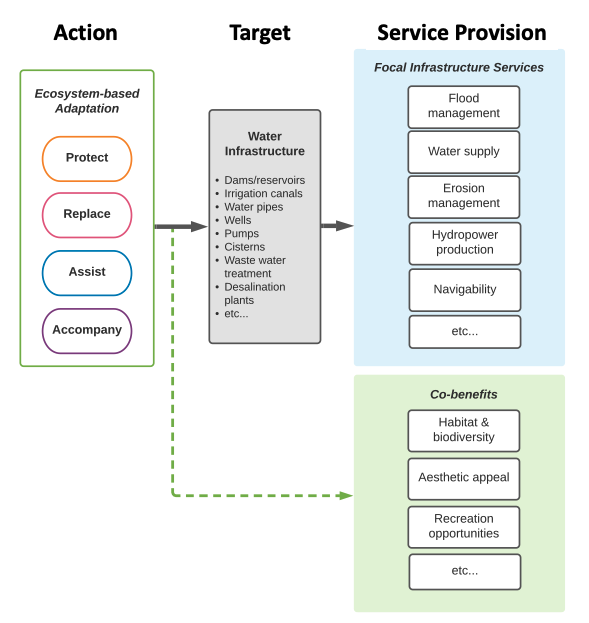Ecosystem-based Adaptation of Water Infrastructure in the Nile Basin
Attribution: The Nile from Jebel Dosha by Laurent de Walick, 2019. Licensed under CC by 2.0
Project Details
Location: |
Nile Basin, 24.33364, 32.79688 | |
Client: |
Deutsche Gesellschaft für Internationale Zusammenarbeit GmbH (GIZ) | |
Duration: |
November 2020 – April 2021 | |
Team Member(s): |
Cedar Morton, Jimena Eyzaguirre | |
Practice Area(s): |
Nature Based Solutions | |
Services Employed: |
Strategic planning and policy analysis, Facilitation and engagement, Science communications |
The Problem We Aimed to Solve
Climate change will affect the ability of water infrastructure to deliver its core services like water supply, stormwater mitigation, habitat provision, and energy production. Climate-related hazards can cause direct damages to water infrastructure, reducing its lifespan, and shifting spatial and temporal patterns of supply and demand. There is a need to “climate proof” water infrastructure and one option is to apply Ecosystem-based Adaptation (EbA). GIZ developed a “Guideline for Climate Proofing Water Infrastructure in the Nile Basin” and sought assistance integrating EbA into the guideline.
How We Helped
We reviewed GIZ’s “Guideline for Climate Proofing Water Infrastructure in the Nile Basin”, developed a high-level conceptual framework for the integration of EbA linked to ecosystem services, and provided recommendations for the insertion of EbA concepts, principles, and guidance.
Our Project’s Impacts
We helped GIZ articulate that EbA solutions are best at addressing slow-onset climate hazards like increasing air temperatures that gradually lead to more evapotranspiration from reservoirs and fields, water quality issues that arise due to chronically crossing stream temperature thresholds, and steady accretion of sediment from erosion that increases slowly over time as precipitation and land use patterns shift. This ability of EbA to mitigate against slow-onset hazards is important from a cost-savings perspective since it is these types of lower magnitude, higher frequency impacts that generate greater cumulative costs over the long-term when compared to extreme events that cause costly damages but occur only once or twice in a century.


